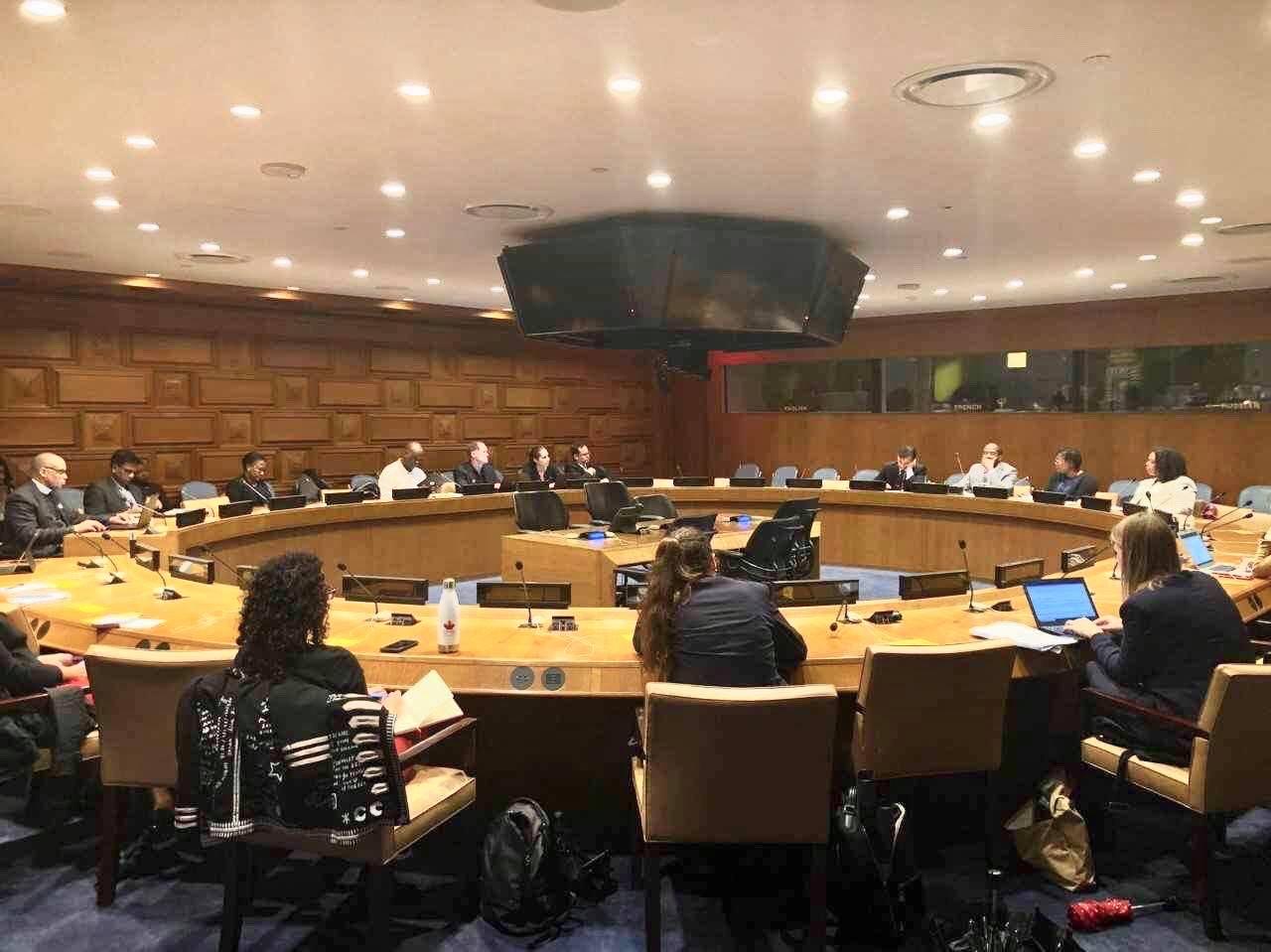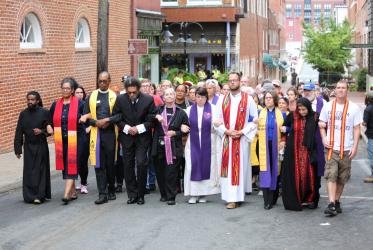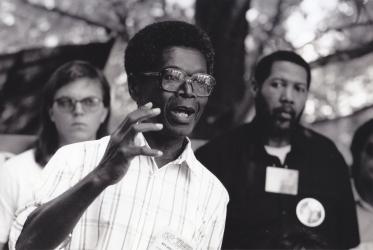On 29-31 October, the World Council of Churches (WCC) Commission of the Churches on International Affairs organised in New York City meetings between faith leaders from Canada and the USA, and United Nations independent human rights experts focussing on racial justice, discrimination, xenophobia and intolerance.
“These meetings are a followup to the 2018 meeting with UN independent human rights experts focussing on racial justice. Our hope is to provide the platform for yearly encounters between our North American faith leaders and these experts, as these meetings are an opportunity to bring our ecumenical voices and perspectives to the work of these experts,” noted Segma Asfaw, programme executive for the WCC Commission of the Churches on International Affairs.
Dr Ahmed Reid, chair of the UN Working Group of Experts for People of African Descent, met with the WCC delegation to discuss white privilege as the root for afro-phobia, the economic impact of discrimination on minority communities, the lack of proper implementation of the Durban Declaration Plan of Action adopted by 136 countries but with only 14 who have adopted national action plans against racism, reparations from slavery, the policing of black and brown bodies, the forced displacement of black bodies due to gentrification, as well as the complicity of churches in these systems of white supremacy and the need for further internal theological reflection to challenge and deconstruct such past theologies.
On 31 October, the UN Working Group of Experts for People of African Descent organised at the UN headquarters a side event on “Addressing Negative Racial Stereotypes and Stereotyping of People of African Descent.”
Dr Alydia Smith, program coordinator for Worship, Music and Spirituality at the United Church of Canada, said: “The church is not exempt from the negative effects of racial stereotyping. Biblical interpretations shared through our theologies, liturgies and worship, teach racism to new generations and normalize harmful stereotypes particularly those around evil, corruption and blackness, and the need for benevolent aid to black people, countries and communities.”
Smith continued: “Whiteness is therefore embedded into the structure and identity of most mainline Protestant churches in North America. Religious symbols only work if there is a shared understanding of meaning. If the symbol does not make sense, regardless of how offensive it is, the symbol does not work.”







